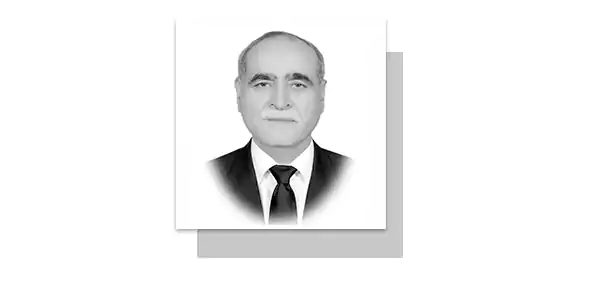THE moment that became history: On May 28, 1998, the mountains of Chaghi echoed with a sound that changed the course of Pakistan’s history.
As nuclear flames lit the sky, Pakistan entered the exclusive club of nuclear nations—declaring to the world that its sovereignty, security and honour were non-negotiable.
Behind this historic moment stood Prime Minister Muhammad Nawaz Sharif, who withstood immense global pressure and upheld the nation’s right to self-defence.
Nawaz Sharif—Architect of a Nuclear Pakistan: Twenty-seven years have passed since Pakistan emerged as the first nuclear power in the Muslim world and the seventh globally.
Nawaz Sharif, then serving as Prime Minister, rejected lucrative foreign offers and chose to respond to India’s five nuclear tests with six of Pakistan’s own.
These tests recalibrated strategic balance in South Asia and bestowed upon Pakistan a deterrent that reshaped its geopolitical role.
This achievement transcended military significance—it marked a psychological turning point.
Decades of insecurity, rooted in India’s conventional superiority, gave way to newfound pride and assurance.
A vulnerable Pakistan now stood firm—confident and unshaken.
Bhutto’s dream, Sharif’s fulfilment: India’s nuclear test in 1974 compelled Pakistan to initiate its own program, despite economic constraints.
Prime Minister Zulfikar Ali Bhutto envisioned this path, famously pledging to build the bomb even if the nation had to “eat grass.
” Successive leaders—General Zia, Benazir Bhutto and others—carried this vision forward.
But it was Nawaz Sharif who brought it to fruition.
His decision was not only historic—it was the culmination of a national dream, reflecting bipartisan consensus on Pakistan’s core security doctrine.
A defining decision under crushing pressure: After India’s 1998 tests, global powers mounted intense pressure on Pakistan.
Billions in aid were offered.
Sanctions were threatened.
But the Pakistani public and defence establishment demanded a resolute response.
Nawaz Sharif stood unflinching.
He chose strength over submission and authorized Pakistan’s own nuclear tests.
The repercussions were real.
Sanctions followed.
But so did global respect.
The nuclear deterrent ensured that Pakistan could no longer be bullied or silenced on vital strategic matters.
From politician to statesman: In choosing principle over pressure, Nawaz Sharif transformed from a political leader into a statesman.
His refusal to yield under global coercion showcased maturity, foresight, and patriotic resolve.
He emerged as a leader who understood that sovereignty is not a commodity to be negotiated—especially under threat.
His courage echoed the unwavering determination of the Quaid-e-Azam, whose commitment to a free and dignified Pakistan laid our national foundation.
That spirit, rekindled on May 28, 1998, continues to inspire confidence to this day.
New challenges, familiar resolve: Today, Pakistan’s defence challenges extend beyond the nuclear threshold.
India’s aggression in Kashmir, repeated ceasefire violations, and disinformation campaigns require firm yet calculated responses.
In this climate, civil-military harmony remains essential to safeguarding national integrity.
The appointment of General Syed Asim Munir as Chief of Army Staff in November 2022, under the Nawaz Sharif-led political mandate, marked a vital step toward restoring institutional stability and national coherence.
Field Marshal Asim Munir: A new strategic doctrine: Now elevated to the rank of Field Marshal, Asim Munir has distinguished himself as a principled commander devoted to constitutional order.
Unlike some of his predecessors who waded into political affairs, Munir has reaffirmed the military’s apolitical role and its commitment to democratic norms.
His doctrine champions stability, professionalism, and unity.
By working in tandem with civilian leadership—particularly in counterterrorism operations like Bunyan-ul-Marsous—and maintaining constitutional boundaries, he has ushered in a new era in Pakistan’s civil-military relations.
This chapter is defined not by power games but by law, trust, and mutual respect.
From confrontation to constitutionalism: This evolving doctrine contrasts starkly with previous patterns of military overreach.
Field Marshal Munir’s leadership represents a transition from coercion to collaboration and from interference to institutional discipline.
By honoring democratic legitimacy and civilian supremacy, he embodies the institutional maturity Pakistan so urgently needs.
The legacy of May 28, 1998, now lives not only in nuclear arsenals and silos—but also in the mindset of those entrusted with defending the republic.
Youm-e-Takbeer: A legacy of unity: More than a date in history, Youm-e-Takbeer is a national symbol of defiance and unity.
Every year, Pakistanis commemorate the day their nation proved it would not bow to threats.
Through seminars, parades, and media retrospectives, one truth echoes clearly: Pakistan stands sovereign and resilient.
For the youth, it offers purpose.
For elders, it rekindles pride.
For leadership, it underscores the gravity of decisions made in the national interest.
Strategic deterrence: Peace through strength: Pakistan’s nuclear doctrine remains grounded in minimum credible deterrence.
The 1998 tests were not provocations—they were declarations of survival.
Since then, despite provocations and hostilities, large-scale war has been deterred.
This deterrent has preserved Pakistan’s strategic space, compelling adversaries to engage diplomatically.
Nawaz Sharif: Recognition long overdue: Despite political turbulence, Nawaz Sharif’s role remains untarnished by partisanship or revisionism.
While Bhutto envisioned a nuclear Pakistan, it was Sharif who delivered it.
His decision was a rare moment of moral clarity and statesmanship.
It is time Pakistan recognized that legacy—not out of loyalty, but historical justice.
Conclusion: Beyond politics, above time: Youm-e-Takbeer reminds us great nations are forged through decisive moments—and leaders who place country above politics.
On May 28, 1998, Nawaz Sharif did not merely lead a government—he defined a generation.
He defined a nation.
—The former Member, AJK Council; Political and Current Affairs Analyst. (khaliqwasi786@gmail.com)


















